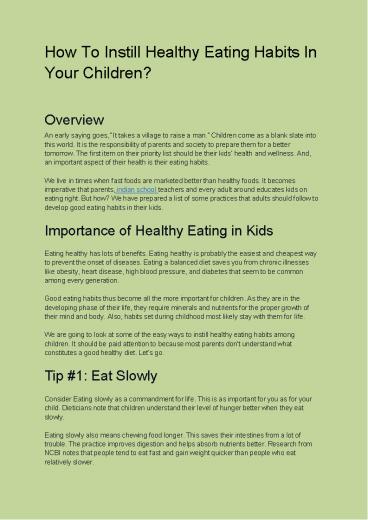
There are three main types of cardiovascular disease prevention: primary, secondary, and primordial. Although each of these elements has the same components, the starting point and effects are different. Patients need to know their risk factors in order to develop a personalized prevention plan. Your goal is to lower your risk of developing cardiovascular problems and live an extended and healthy life. Read on for tips on how to prevent heart disease. This article examines the various types and treatments for cardiovascular diseases.
First, you should focus on a healthy diet. A heart-friendly diet is one that is high in fiber, low in salt, and rich in vitamins and minerals. The next step is to eliminate processed food, including white bread and processed snacks. These foods are bad for your heart unless you consume high levels of fiber. You can also avoid fast-food and packaged snacks. Lastly, don't reach for the salt shaker. Over-salinization can lead to heart disease.

Regular exercise is important in addition to eating healthy food. Experts recommend 150 mins of moderate exercise per semaine - approximately 20 minutes per days - along with a variety of low-calorie food options. A regular exercise program can also lower blood pressure, prevent heart disease, and help you stay healthy. Heart disease prevention can be achieved by practicing mindfulness and managing stress. It's much easier than it seems, and not as difficult, to change your lifestyle.
A healthy diet will reduce your risk of developing heart disease and help you to avoid heart attacks. A diet high in fruits, vegetables and other healthy foods can reduce your chance of getting the disease. A diet high in beans and low-fat proteins may also reduce your chances of developing the disease. The omega-3 fatty oils found in certain fish may help to lower your risk of developing heart disease. You can incorporate these strategies into your daily life, if time allows.
Smoking is a significant risk factor for developing heart disease. Stop smoking to lower your risk of coronary artery diseases. If you smoke, you should quit. You are better for your heart if you quit smoking. Avoiding secondhand smoke can also lower your risk of developing coronary artery disease. It is important to stop smoking if you are a smoker. This will reduce your risk of heart disease.

Heart disease prevention is a lifelong endeavor. Although it can be difficult to spot, heart disease can increase your risk of developing serious conditions such as heart failure. It is important that you take steps to decrease your risk of developing heart disease. You can reduce your risk of developing this disease by adopting healthy lifestyle habits. This will help you live a long healthy life. The more you do, the healthier you'll be.
FAQ
Do Men Need A Gym Membership?
For men, a gym membership is not required. A gym membership will make your money more valuable.
Most gyms offer free trial members, which allows you to use the facilities without paying anything.
You can use the gym whenever you like, and it won't cost anything. You can cancel your membership at any time, no matter how much you like it.
What diet supplement is best to lose weight?
Losing weight requires both diet and exercise. Some people find that certain supplementation can be helpful.
Some studies suggest that omega-3 fatty acids may help with weight loss. Omega-3s are essential fats which are crucial for brain function. They can be found in seafoods like salmon, tuna or shrimp, as well as cod liver oil.
Research suggests that green tea may be beneficial in weight loss. The antioxidants in green tea, catechins and other compounds may increase metabolism and promote weight loss.
Is it true to say that protein overeating can lead to kidney stones?
Protein helps maintain healthy bone and tissue. However, too much protein can result in calcium excretion through the urine. This can lead to kidney stone formation.
Not everyone who eats more than 2g of protein per kilogram (2.2 lbs) of bodyweight will get kidney stones. Some people can eat high amounts of protein without getting kidney stones.
Watching your sodium intake can help prevent kidney stones. The kidneys regulate the amount of sodium they consume. Too much sodium can cause kidney stones.
You may also want to reduce your protein intake in the event of kidney stones. For most people, protein provides half their daily caloric requirements. If you cut back on protein, you'll likely lose weight.
If you do decide to eat more protein, don't go overboard. You should aim to consume less than 20% of your total calories from protein.
Are you a cardio-exercise fan?
Cardiovascular exercise is a great way to improve your cardiovascular health. It improves blood flow, strengthens your heart muscle and increases stamina.
Cardiovascular exercise includes running, biking, hiking, swimming, tennis, basketball, soccer, volleyball, football, etc.
Cardio exercises should be avoided at high intensity levels. This could lead to injury.
You should only perform the cardiovascular exercise if you are feeling well.
You should never push yourself beyond your limits. Otherwise, you could end up injuring yourself.
It is important to warm up before you begin any cardiovascular exercise. Start slowly increasing your intensity.
Remember, you should always listen to your body. If you feel pain during cardiovascular exercise, stop immediately.
Also, after a cardiovascular workout, it's advisable to take a rest. This gives your muscles the chance to heal.
Cardiovascular exercise is an important part of losing weight.
It is the best method to lose calories and reduce belly weight.
Statistics
- An estimated calorie range for moderately active adult males falls between 2,200 to 2,800 calories per day, depending on age. (eatright.org)
- Candidates and applicants must pass all four tests at 70% (minimum level) to graduate from Basic Deputy U.S. Marshal (BDUSM) Training. (usmarshals.gov)
- The PRS enabled risk stratification for overall prostate cancer and lethal disease with a four-fold difference between men in the highest and lowest quartiles (HR, 4.32; 95% confidence interval [CI], 3.16-5.89). (pubmed.ncbi.nlm.nih.gov)
- Cardmembers earn 5% Back at Amazon.com with a Prime Credit Card. (amazon.com)
- According to the American Heart Association, blood pressure should be checked at least once every two years, beginning at age 20. (my.clevelandclinic.org)
External Links
How To
How to Eat Well for Men
Smaller meals are better than three large meals spread out over the course of the day. You will spend less time consuming food and your stomach. Later, you'll be less likely overeat.
Avoid snacks before bedtime. Snacking late at night causes you to wake up hungry and overeat the following day.
Consider having a light snack one hour before bed.
Avoid snack attacks where you grab something every time you feel hungry. This can be especially dangerous for those who are already obese.
You should ensure that your meals are balanced. Avoid skipping breakfast and make sure that you don't eat too much at lunch and dinner.
Cut back on calories if weight loss is a problem.
You can cut out caffeine, alcohol, and nicotine. Both can influence how your body processes nutrients.
Get enough sleep. Sleep deprivation makes people crave junk food.
Exercise regularly. Exercise can improve your mood, increase energy levels, and help you burn more calories.
Take care of yourself mentally. Overeating and weight gain can be caused by stress.
Relax. Meditation and yoga can relieve anxiety and stress.
Keep track of everything you eat. Note everything that you put in your mouth.
Remember to take supplements! Many men don't get enough vitamins and minerals to keep them healthy.
Take a multivitamin every day. A daily multivitamin can help you avoid deficiencies in certain vitamins and minerals.
Consider taking vitamin C supplements. It can help prevent scurvy, strengthen your immune system, and keep you healthy.
Zinc can be added to your diet. Impotence may be caused by zinc deficiencies.
Drink water. Drink water at a minimum of 1.5 liters (or 4 cups) per day.
Reduce salt intake. Reduce salt intake.
Avoid trans fats. Trans fat has been linked with higher obesity, diabetes and heart disease rates.
The Best Male Enhancement Pills 2018 - Read the Best Male Enhancement Pills Reviews
There are many male enhancement products on the market today. Some products work well while others provide no real results. This article will help you find the best male enhancement drugs that actually work.